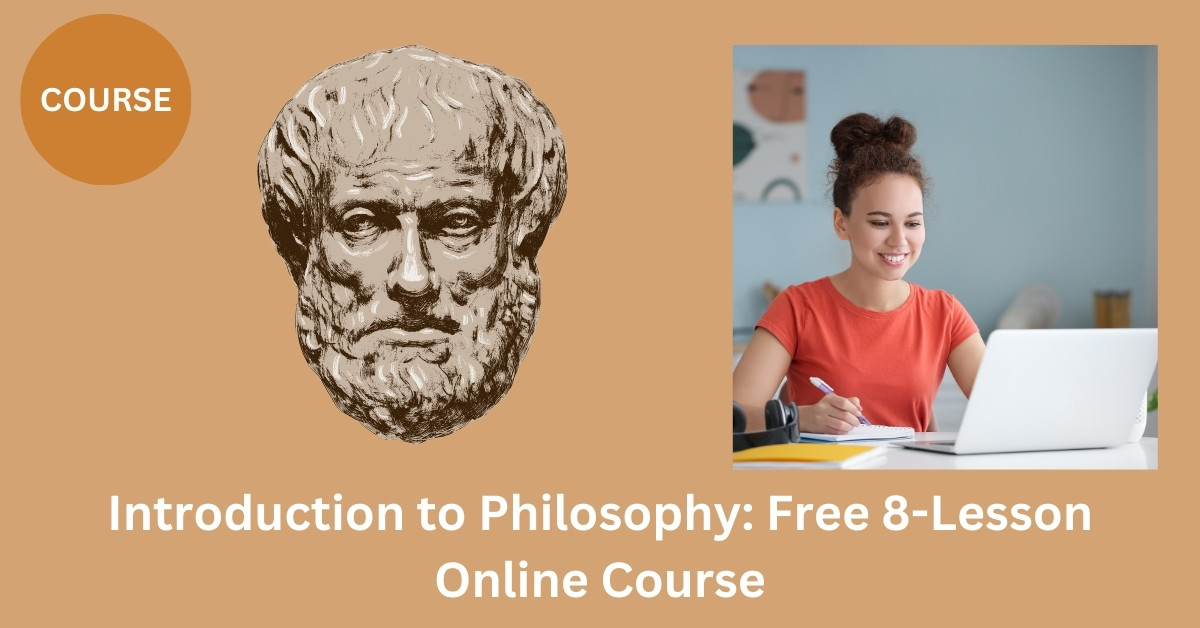Philosophy often serves as a guide for those seeking to live more meaningful lives, yet certain concepts can be challenging to fully grasp. One such idea is Anatta, or non-self, which is a central principle in Buddhist philosophy. Understanding the significance of Anatta can profoundly impact how we apply philosophical teachings to enrich our lives. This article will explore Buddhist philosophy, the concept of Anatta, and their importance in the pursuit of a life filled with meaning and purpose.
Key features of Buddhist philosophy

Buddhist philosophy centers around understanding the nature of life, suffering, and the path to enlightenment. At its core are the Four Noble Truths, which explain that suffering is a part of life, that it arises from cravings and attachments, and that ending these can lead to peace and freedom. The Eightfold Path outlines practical steps to achieve this, including right actions, mindfulness, and wisdom.
Buddhism emphasizes impermanence, teaching that everything is constantly changing and interconnected. This perspective encourages detachment from material desires and helps individuals find peace. It also highlights the concept of karma, where actions have consequences that shape future experiences. Developing compassion, awareness, and ethical conduct are key principles in Buddhist practice.
Meditation plays a significant role in Buddhism, helping individuals quiet their minds, develop focus, and gain insights into their thoughts and feelings. The ultimate goal is to reach enlightenment, or Nirvana, a state of liberation from the cycle of birth, death, and rebirth. Buddhist philosophy encourages a life of balance, mindfulness, and harmony with the world. Its teachings offer guidance to improve mental well-being and cultivate a deeper understanding of oneself and the universe.
What is Anatta (non-self)?
Buddhism teaches the concept of Anatta, which means “non-self” or the absence of a permanent, unchanging self. This idea challenges the common belief that there is a fixed “I” or “me” that remains constant throughout life. According to this teaching, a person is made up of changing physical and mental components, such as the body, feelings, thoughts, perceptions, and consciousness. These elements are always shifting and do not form a lasting identity.
Anatta suggests that clinging to the idea of a permanent self leads to misunderstanding the true nature of existence. Instead, Buddhism emphasizes that life is a process of constant change, where nothing stays the same forever. This concept is fundamental in Buddhist philosophy and plays a key role in understanding the nature of reality. By realizing Anatta, one can see through the illusion of a fixed self and better align with how life truly operates.
This example helps to demonstrate this philosophical perspective. A well-known example from Buddhism that illustrates the concept of Anatta, or non-self, involves the analogy of a chariot. Imagine a chariot broken down into its individual parts—the wheels, the axles, the carriage, and so on. Upon examination, one cannot find a core “chariot” within the individual components. The chariot exists only as a whole when all its parts are assembled and functioning together; it is simply a term used to describe the collection of parts working in unity. Similarly, this idea extends to human beings. If we break down a person into their body, thoughts, emotions, and experiences, no single part can independently be identified as the “self.” This example reflects how identities are often viewed as a collection of changing elements rather than something fixed or unchanging.
Challenges to Buddhism’s view about Anatta (non-self)
Some philosophers object to or reject Buddhism’s view of Anatta (non-self) primarily because it conflicts with their understanding of self, identity, and personal continuity. One common concern is that denying the existence of a permanent self may lead to difficulties in explaining personal responsibility and moral accountability. Many ethical theories and legal systems are built on the idea of a stable individual who is accountable for their actions. Without a clear sense of self, critics argue, it becomes challenging to hold someone morally or legally responsible for what they did in the past.
Another reason for rejecting Anatta comes from the belief that a consistent sense of personal identity is necessary for meaningful human experiences. Philosophers who emphasize the importance of the self argue that relationships, commitments, and future goals all require a continuous personal identity. For example, the bonds we form with others, such as friendships and family ties, often depend on a shared belief in both parties being the same “selves” over time. Without the concept of a self, these relationships may lose their depth and meaning.
Additionally, some philosophers critique the practicality of rejecting the self. They argue that the everyday experience of being an individual is so deeply ingrained that it is nearly impossible to function without assuming a personal identity. Decisions, memories, and emotions often feel tied to a “self” that perceives and interacts with the world. Philosophers who take this stance claim that denying a sense of self contradicts lived experience and runs counter to basic human intuition.
Finally, certain philosophical traditions, particularly those in the Western context, center their theories on the existence of the self as a foundational concept. For example, Descartes’ famous phrase, “I think, therefore I am,” establishes the self as a core reality. These traditions often treat the existence of the self as an obvious truth that does not need to be questioned, making the Buddhist perspective of Anatta seem foreign or counterintuitive. Such differences in philosophical paradigms can make it difficult for some thinkers to accept the non-self concept.
Why Anatta (non-self) is important to Buddhist philosophy
These are some of the main reasons why grasping the concept of Anatta (non-self) is essential to comprehending Buddhist philosophy.
- Encourages Selflessness and Compassion
The idea of Anatta inspires individuals to look beyond their own desires and attachments. By recognizing that there is no permanent “self,” people may become less focused on themselves and more open to understanding others. This shift in perspective can foster a natural sense of compassion and empathy. When we stop thinking of ourselves as isolated individuals, it’s easier to connect with others and consider their needs. This mindset can reduce selfishness and lead to kinder, more cooperative relationships with those around us.
- Reduces Suffering Caused by Attachment
Attachment often leads to stress and unhappiness, especially when things don’t go as planned or are taken away. The idea of Anatta helps people understand that clinging to possessions, status, or even an identity can be a source of suffering. By recognizing that these attachments are not tied to a fixed self, individuals may find it easier to accept change and loss without becoming overwhelmed. This makes it possible to live more peacefully, regardless of life’s ups and downs.
- Promotes Flexibility and Growth
If there’s no unchanging self, then personal growth and transformation become limitless. Anatta can encourage people to view life as an ongoing process of change instead of being stuck with fixed identities or labels. This perspective allows for more openness to learning and evolving, as individuals are not confined by the belief that they must always be a certain way. It can also help in developing resilience because change is viewed as a natural part of life.
Contrasting Buddhist philosophy with Rene Descartes
Buddhism’s concept of Anatta, or non-self, differs significantly from Rene Descartes’ philosophy of the self. Descartes famously claimed, “I think, therefore I am,” which suggests that the essence of existence lies in the thinking self. For Descartes, the self is a fixed, identifiable core that continues to exist through thoughts, experiences, and time. This view takes the self as a central and permanent aspect of being.
On the other hand, Buddhism’s perspective challenges this idea by suggesting there is no unchanging, permanent self. According to Anatta, what we perceive as “self” is a collection of changing physical, mental, and emotional components. These elements constantly evolve and are shaped by experiences, meaning there is no static “I” underlying these changes. This stark contrast between the two philosophies lies in how they define identity and existence.
Descartes’ view reinforces the idea of a central, stable self at the heart of experience, whereas Anatta dismantles such a notion, focusing instead on impermanence and interconnected aspects of being. While Descartes highlights individuality and certainty through the thinking self, Buddhism emphasizes detachment from the idea of a concrete self to understand reality more fully. These differing views shape how each tradition approaches questions of existence, consciousness, and identity.
Anatta (Non-Self), Buddhist philosophy and the philosophy of life
Reflecting on Buddhism’s view of Anatta, or non-self, can be a valuable exercise in shaping your own philosophy of life, regardless of whether you agree with it or not. By contemplating this concept, you open yourself to questioning some of the assumptions you may hold about identity, the self, and what truly defines you. This kind of introspection fosters personal growth, broadens your perspective, and helps you to better understand how your thoughts, emotions, and actions are interconnected. Even if you ultimately reject the idea, the process of reflecting on it can lead to meaningful insights.
One practical way this reflection can benefit your life is by diminishing unnecessary attachment. If you take time to consider that some of what you identify with—your successes, failures, or even roles you play in society—is changeable or impermanent, it may help you feel less burdened by external pressures. This can improve your resilience during challenging times and allow you to maintain a healthier relationship with life’s ups and downs. You might also start to see yourself as part of a larger system, which can foster compassion toward others and reduce feelings of isolation.
Additionally, reflecting on this concept encourages humility and adaptability. When you realize how dynamic and fluid your identity can be, you might become more open to change and growth. For instance, instead of rigidly holding on to the idea of who you should be based on societal or personal expectations, you might feel freer to evolve and explore different facets of yourself. This mindset can be empowering and help you face life’s uncertainties with a sense of curiosity rather than fear.
Most importantly, taking the time to think about Anatta—or any worldview different from your own—teaches you to approach life with an open mind. Being curious about other philosophies, even if you don’t adopt them fully, can make you more thoughtful and intentional about how you choose to live. It encourages you to explore deeply what gives your life meaning and helps you align your actions with your values. By engaging with ideas like Anatta, you not only develop your personal philosophy with more depth and care but also cultivate a mindset that embraces learning and reflection—a quality that can enrich every aspect of your life.
Further reading
Gethin, R. (1998). The foundations of Buddhism. Oxford University Press.
Harvey, P. (1995). The selfless mind: Personality, consciousness and Nirvāṇa in early Buddhism. Routledge.
Lusthaus, D. (2002). Buddhist phenomenology: A philosophical investigation of Yogācāra Buddhism and the Ch’eng Wei-shih lun. RoutledgeCurzon.
Nagapriya. (2004). Exploring karma and rebirth. Windhorse Publications.
Siderits, M. (2007). Buddhism as philosophy: An introduction. Ashgate.
Trainor, K. (Ed.). (2004). Buddhism: The illustrated guide. Oxford University Press.
Williams, P., & Tribe, A. (2000). Buddhist thought: A complete introduction to the Indian tradition. Routledge.


